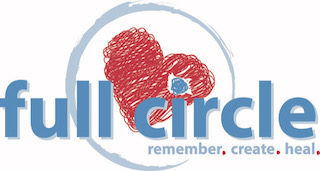Suicide Loss: Connection is Key
The Benefits of a Support Group
A loss by suicide can be confusing. Individuals grieving a loved one to suicide not only feel the immense sadness that comes along with their grief but may also have additional feelings to complicate their journey. These may include guilt or self-blame, anger, confusion, shock, abandonment, betrayal, and embarrassment or shame. While it may seem easiest for those left behind to withdraw from others, it is the connection with others that have experienced a similar loss that can be the most helpful. Taking the first step to look for these connections can often be difficult and not everyone is ready to do so at the same time.
When suffering a loss by suicide, support can also be found in others who have not experienced a suicide. Family and community support are extremely beneficial. In fact, it is recommended that one has individual professional support when joining a support group for suicide loss. They pair well together. The individual support can assist in processing feelings that may arise throughout group, and the group support may help to normalize the feelings discussed in individual therapy. Group support allows individuals to hear that they are not alone. Group members can connect in many ways. They may find similarities in their coping skills, in describing their previous relationships with their loved ones, or in the struggles that go along with mental illness. Their grief journeys may resemble another group member’s path.
In a world where human contact is often done behind a screen, a support group provides personal interaction. Tears can be shed together. Hugs can be given. And as group moves forward, smiles can be shared. Human connection is necessary for our happiness. A suicide loss support group can be the next step in finding joy again. Hear more about the benefits of group support from one of our Suicide Loss Group participants.
“Hello. My name is Jimmy and first, I’d like to say I’m sorry to each of you reading this for the loss of your loved one. A club that none of us wants to be a member.
I found out about Full Circle from a counselor in another grief program. I found it to be very helpful and very well run by the staff, who was always attentive and had caring things to say when greeting me. It helps so much to be involved with a group of people that are right where you are emotionally. I think only people that have lost someone through suicide can appreciate what I am saying. As hard as it is to repeat what you know, think and feel to someone else, it truly does help to get it out and know that others care for what you are saying, embrace you, and understand where you are coming from. I would encourage each of you to attend the group if possible and you will find yourself looking forward to the next week. As you become friends with the others in your class, more and more, you relate to them, and them you. You learn. Many things you do in group will be hard emotionally and physically. I am a guy and I still cry from time to time when participating or telling my story. I’ve never been like that, but it’s OK. In the end, it has some sort of goodness to it that I can’t explain. But, I think you will see, everyone else has been there, done that too, and understands where you are coming from. In ending this, in my opinion, you have made a wise choice to help yourself by attending this class. It was very helpful to me and I hope it will be to you as well. Take care and good luck to each of you. – Jimmy”
 Photo: Jimmy and his son, Aaron
Photo: Jimmy and his son, Aaron
More information about suicide loss support groups can be found below:
https://fullcirclegc.org/suicide-loss-group/
https://afsp.org/find-support/ive-lost-someone/find-a-support-group/
Maryse Eubank, M.Ed.
Full Circle Grief Center, Richmond, Virginia
Suicide Bereavement Services Manager

